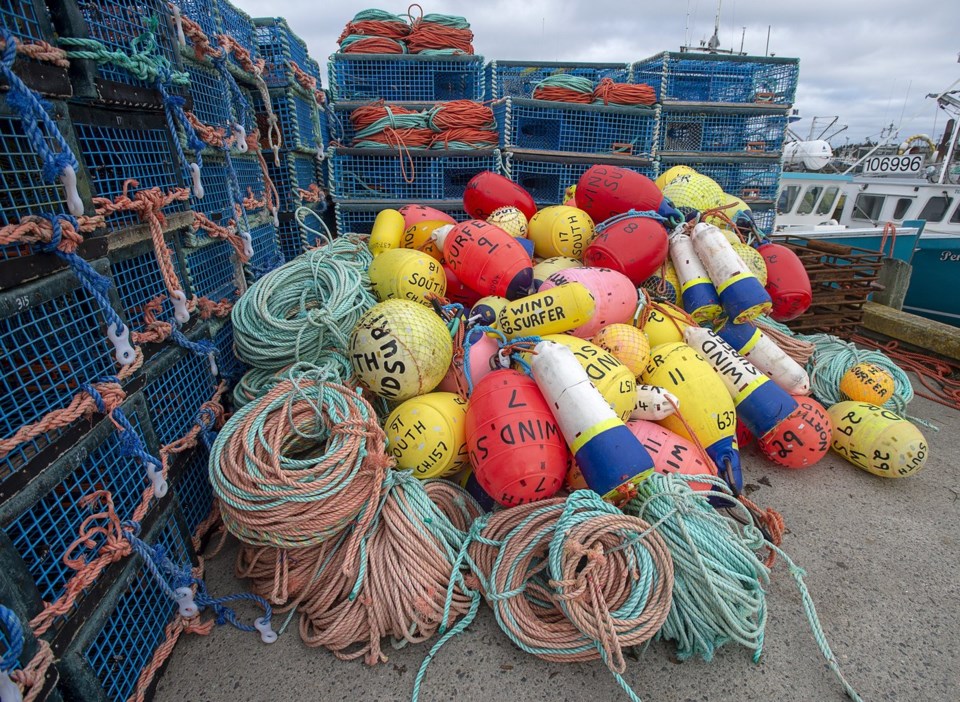HALIFAX — Inadequate federal enforcement of the lobster fishery in southwestern Nova Scotia is emboldening organized crime that is “terrorizing” the local community, say two provincial cabinet ministers.
Fisheries Minister Kent Smith and Justice Minister Barbara Adams wrote letters to the federal government last week, asking for more help and co-operation to address what they say is an increase in serious crime in the Clare and Meteghan areas.
In his letter dated Aug. 22, Smith tells federal Fisheries Minister Diane Lebouthillier that her department's inability to prevent illegal and out-of-season lobster fishing has “enabled and emboldened the growth of organized crime that is terrorizing the community.”
“I am hearing directly from fishers that have been threatened, that have had property damaged and that live in constant fear of repercussions for speaking out,” Smith says. “Lack of action impacts public safety and the sustainability of our most valuable seafood resource. It also diverts tax revenues from both our governments that can be reinvested in our communities.”
Smith does not point a finger at any specific group, but says he has ordered that provincial inspections be stepped up in the Clare region to ensure Nova Scotia’s regulations on illegal buying and processing of lobsters are being followed.
The provincial minister is also careful not to blame front-line federal enforcement officers who he says should be “adequately resourced and supported to do this difficult and extremely important job.”
In an interview Tuesday, Smith said his strong language to Lebouthillier was the result of a growing sense of frustration with the federal government’s response to tensions around the lobster fishery.
“It’s a very serious issue,” he said. “There’s some serious concerns for public safety in the region and when people are coming to me with really troubling stories then I feel like I have to do my job.”
Smith also made it clear that he was not referring in any way to the fishery operated by the Sipekne’katik First Nation. “This is not Indigenous related. This is bad actors doing bad things and fishing out of season for illicit profits.”
In her Aug. 23 letter to Lebouthillier, Adams said the provincial justice department has doubled the number of RCMP patrol officers in the Municipality of Clare from seven to 14, at costs that are “borne by the province of Nova Scotia.” As well, the minister said additional general duty and investigative resources have been added because of the “acute concerns of citizens.”
“I would like to add my support to minister Smith’s request to have our provincial and federal agencies work together to meaningfully address this issue in the Clare region,” Adams said.
Neither Lebouthillier’s office nor the Nova Scotia RCMP were immediately available for comment Tuesday.
In recent months, RCMP in the Meteghan area have reported several violent crimes including two incidents of shots being fired at a home, two arsons and the burning of a police vehicle, although none of the incidents were specifically linked to the fishery.
In an interview last month, Sgt. Jeff LeBlanc, the detachment commander, told The Canadian Press that incidents involving threatening behaviour and intimidation had been investigated over the previous six months.
LeBlanc said the Mounties were planning to maintain an “amplified presence” and added that there wasn’t a link between the recent violent incidents and a dispute two years ago involving Indigenous and non-Indigenous fishers over access to the local lobster fishery.
He described the violent perpetrators as a “group of organized criminals within our community.”
This report by The Canadian Press was first published Aug. 27, 2024.
Keith Doucette, The Canadian Press



